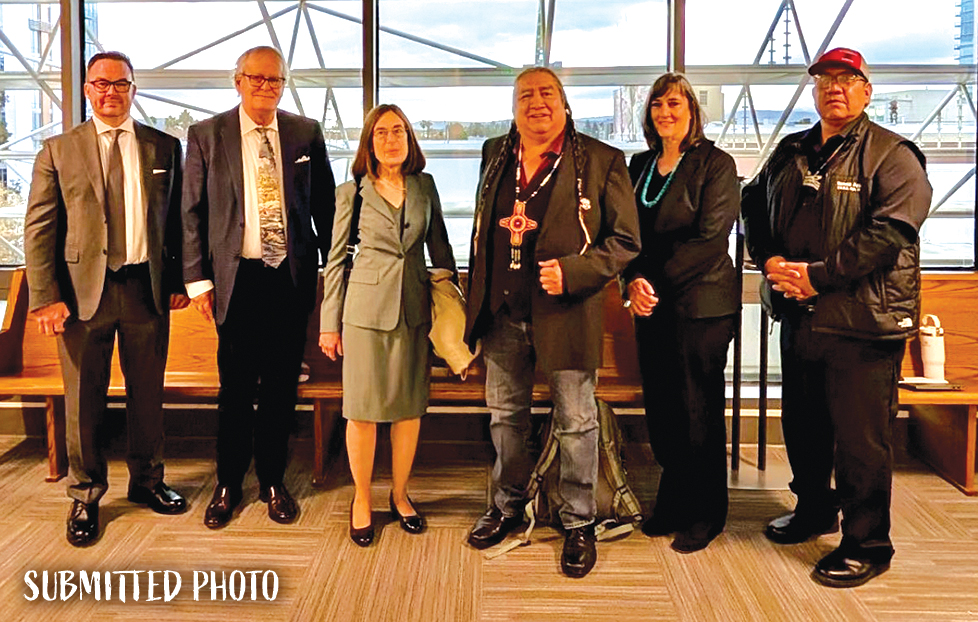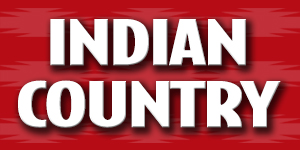Sho-Ban Tribes representatives attend 9th Circuit court hearing on Blackrock Land Exchange

From left, tribal attorneys Monte Gray, Bill Bacon, Jill Grant; FHBC Chairman Lee Juan Tendoy, EWMP consultant Susan Hansen and FHBC member Ronald Appenay.
By ROSELYNN YAZZIE
Office of Public Affairs
SAN JOSE, Calif. — Fort Hall Business Council Chairman Lee Juan Tendoy, Councilman Ronald Todd Appenay, and Tribal attorneys Bill Bacon and Monte Gray attended the U.S. Court of Appeals for the Ninth Circuit Hearing of the Shoshone-Bannock Tribes v. United States Department of Interior November 21 to hear oral argument regarding the Blackrock Land Exchange.
Tribal Attorney Bill Bacon explains Blackrock One started in 2009 based on the Bureau of Land Management (BLM) not complying with the National Environmental Policy Act (NEPA). Judge Winmill ruled in the Tribe’s favor of the non-compliance. Simplot and BLM appealed and it was upheld.
BLM and Simplot tried to do a better job of complying with NEPA, but in 2019 the Tribes filed Blackrock Two, which resulted in Winmill ruling in their favor again, but this time they argued it violated a 1900 Act when they ceded 416,000 acres of land back to the federal government, which included the land where Simplot and FMC are located.
The Tribes sued them, this time for violation of that cessation agreement and they again failed to comply with NEPA and the Federal Land Policy Management Act (FLMPA). Simplot appealed, which the hearing was about last week. Judges hearing the case were Michelle Friedland, Matthew Kennelly, and Patrick Bumatay.
The ruling could take six months to determine.
Bacon said he feels confident the Shoshone-Bannock Tribes will have a positive outcome.
Chairman Tendoy said, “This issue holds dear to our hearts, our sacred Earth Mother needs healing. The ceded lands are still a part of our Treaty language and we shall protect it.”
He says the area being proposed by the J.R. Simplot Company to take their waste will negatively impact life, as they wanted to extend around where they are currently at the Gypsum Stack. They then proposed to continue to put their hazardous waste near Inkom, which is a part of the ceded Treaty lands.
Tendoy’s great, great-grandparents once lived in the Inkom area and he says it’s been a very sacred area since time immemorial. The area is also a migration route for big game herds.
Chairman Tendoy hopes the judges will see the bigger picture and J.R. Simplot will come up with another alternative and with new technologies be able to find a better solution so the Tribes can save their natural resources for future generations.





